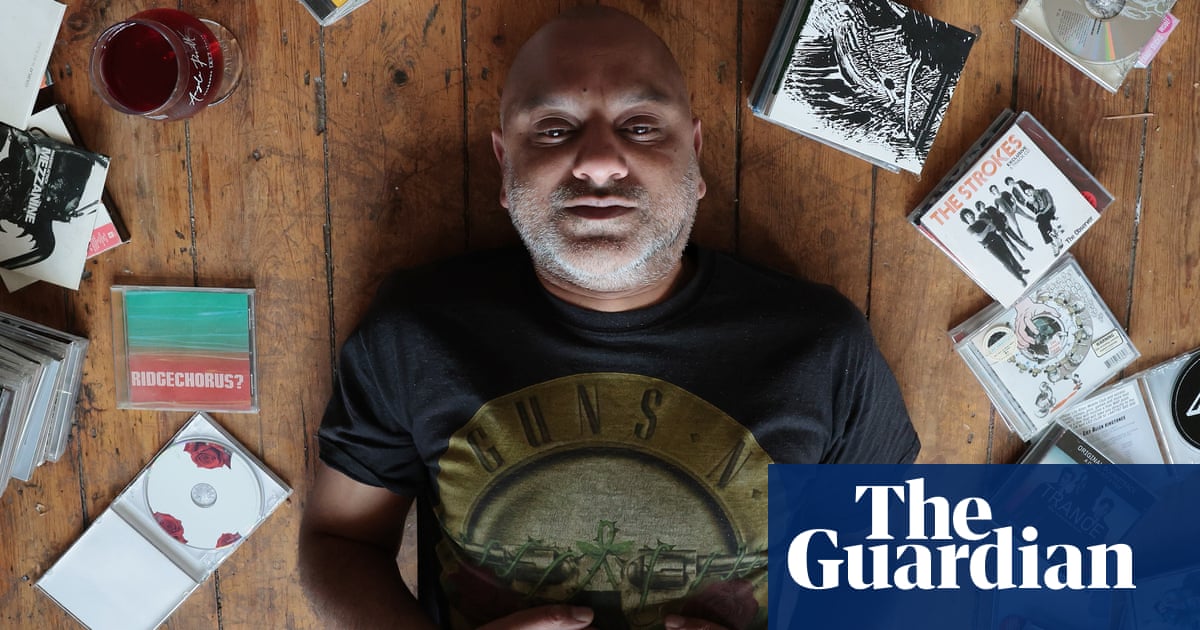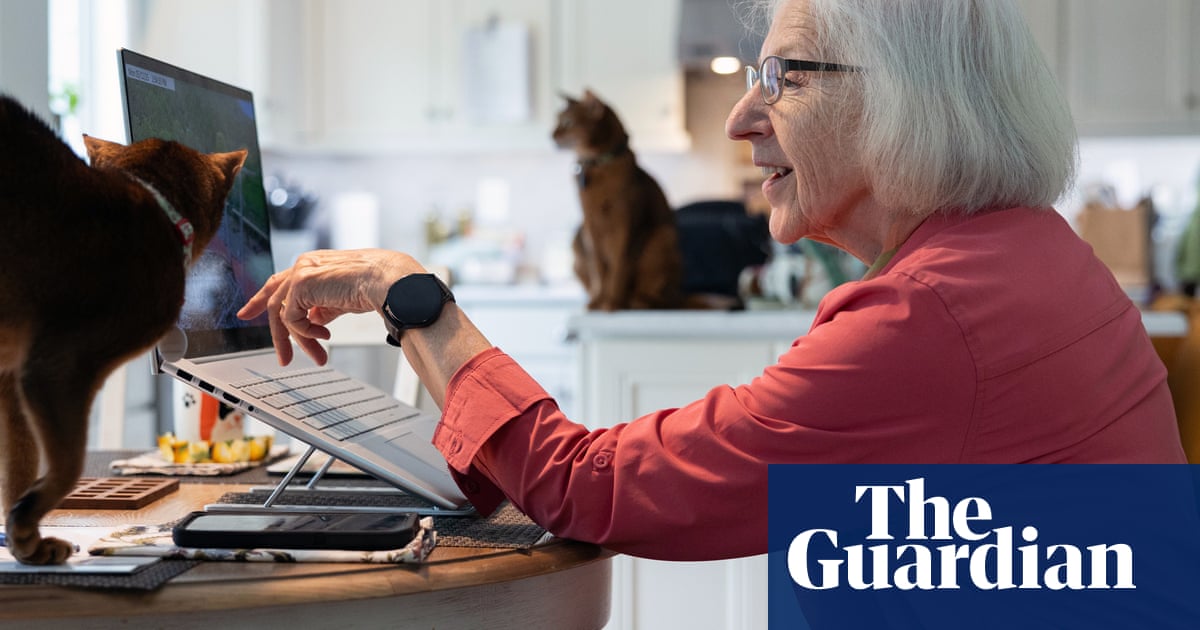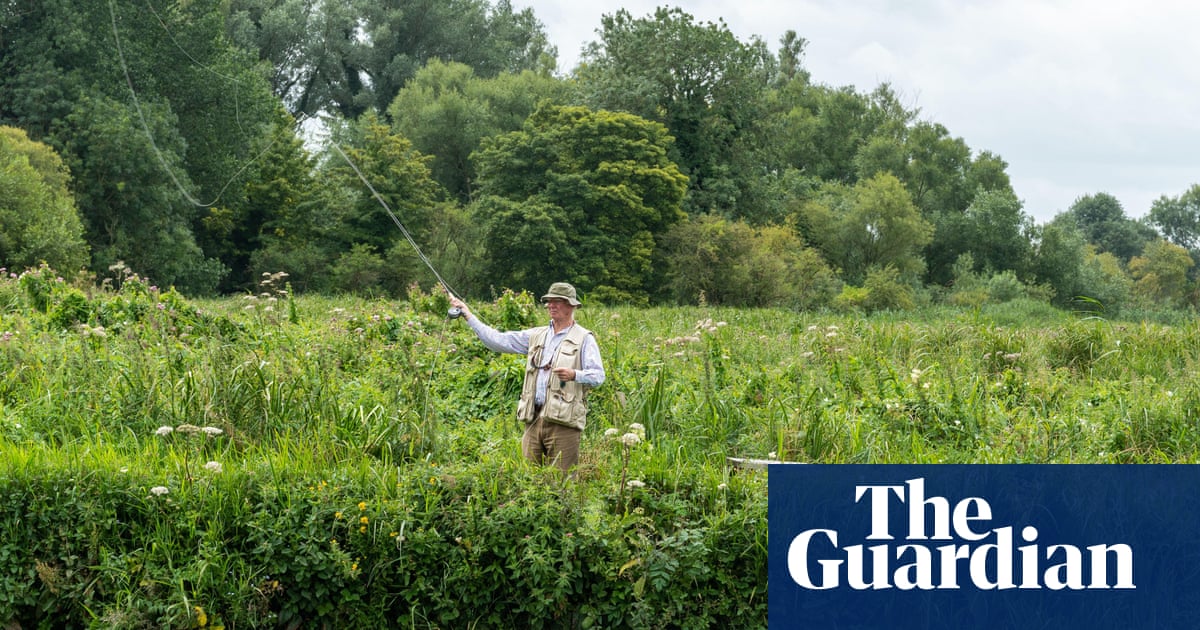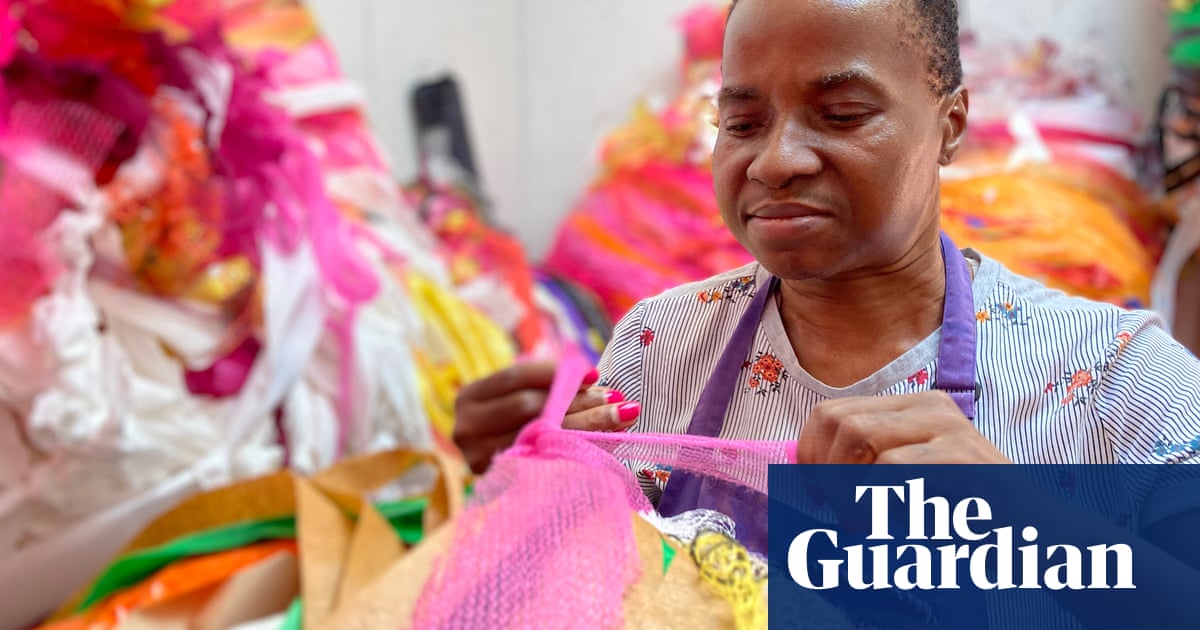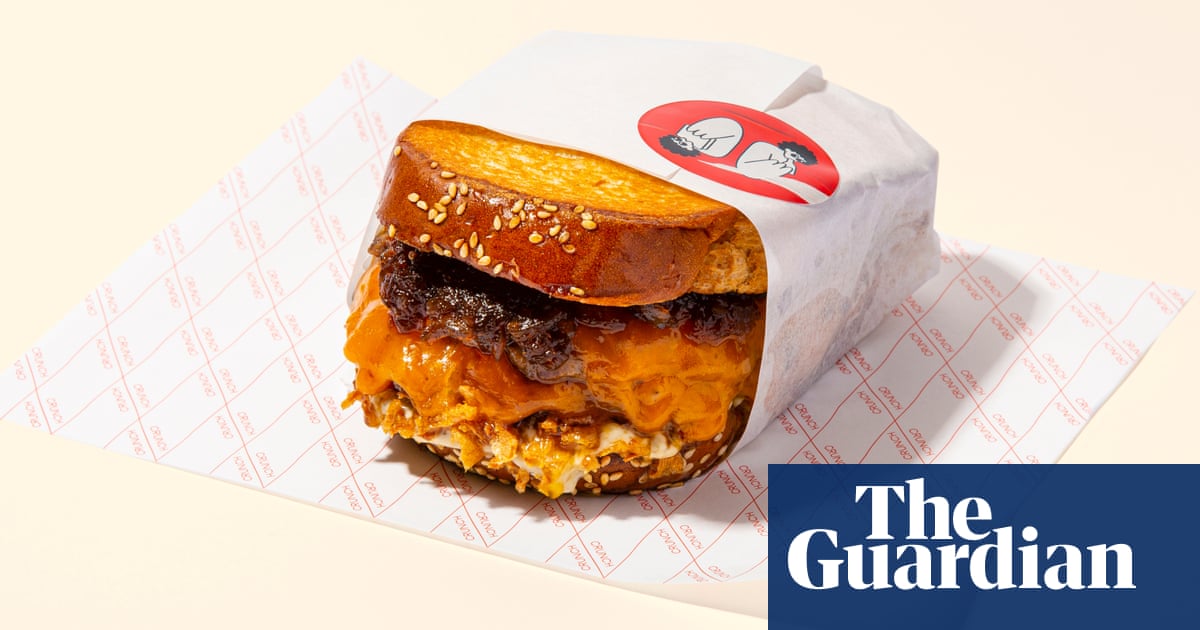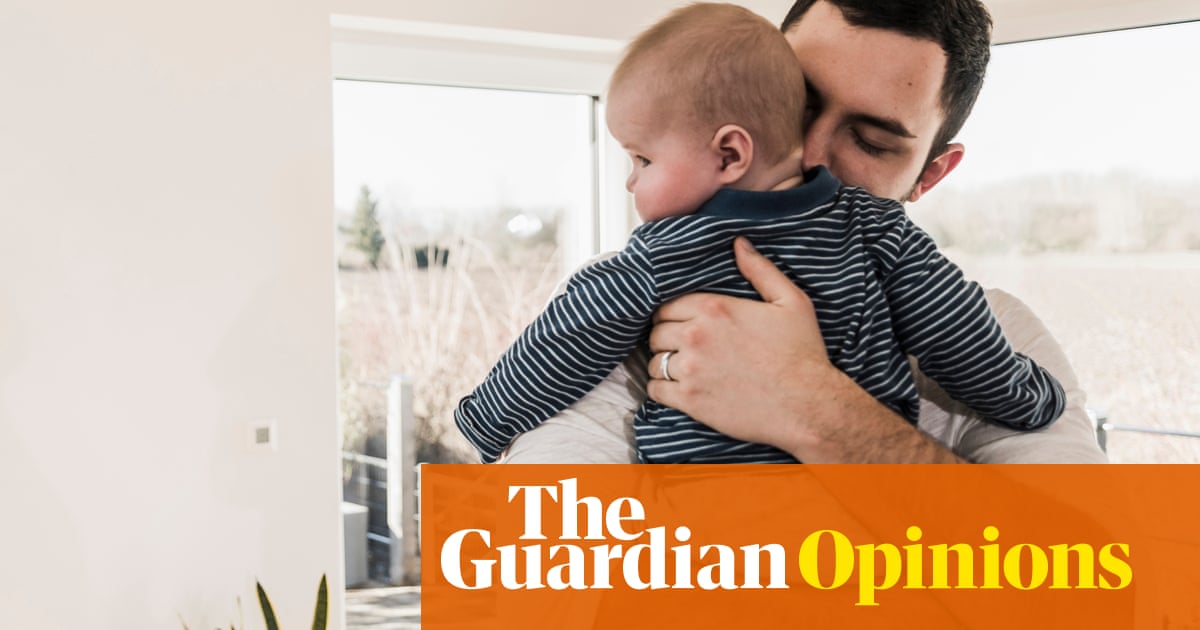Patrick Grant is on his feet, giving the full tour of his outfit. He tugs down the waistband of his jeans to show off his white underpants elastic. His undies were made in south Wales, he says. His shoes in Bolton, the socks in Sussex. More than a man who got dressed this morning, he is a walking compendium of clothing.
The provenance of his garments is important to Grant. In fact, the provenance of his everything is important. We are meeting in the office of Cookson & Clegg, the Blackburn clothing factory he bought in 2015. Within a few minutes, I’ve learned that the table we’re sitting at came from Freecycle in Crystal Palace, the bookcase from a skip. I suspect these details have always mattered to Grant,53, who is best known as a judge on The Great British Sewing Bee, but they’re especially pertinent since his book, Less, argues that we should all buy fewer things. Grant is very exercised about this idea, and the book’s affably bossy subtitle is a much better clue to his personal energy than its minimalist title: Stop Buying So Much Rubbish: How Having Fewer, Better Things Can Make Us Happier.
Less is a sort of anti-shopping guide, a plea to think very carefully before we part with our cash. Which might seem surprising given that Grant has himself for 20 years been a retailer, designer and clothing manufacturer. But his businesses have emphasised quality over quantity – he bought Norton & Sons, a Savile Row tailor, in 2005 after seeing it advertised for sale in the back of the Financial Times. And in 2016, he launched Community Clothing, a for-profit social enterprise. While the aim is to make a profit, its declared focus is “creating jobs”. All the clothes are made at UK factories, in an effort to help revitalise industrial regions. Last week it launched a crowdfunding campaign.
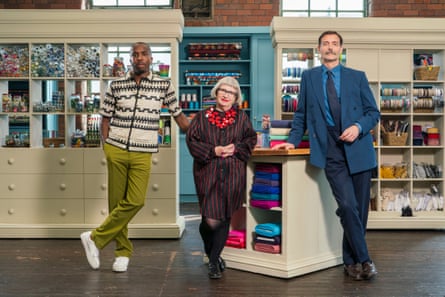
What it’s very much not about is fashion. “The whole idea of fashion with a big ‘F’ is a deliberate act on the part of commercial businesses to encourage people to buy things they don’t need,” Grant says. That’s how we ended up with fast fashion and “this acceleration and shitification of the whole thing”.
At Community Clothing, there are no sales or seasons. In style terms, it’s a collection of high-quality basics, like the luxury brand Sunspel but at a third of the price. Grant,, comes across as a thoughtful provider of goods rather than a salesman. When I say I have my eye on a couple of things on the website, he asks sternly, “What do you need?”
The philosophy he sets out is simple. We should make things locally, and make things to last, thereby taking better care of both our planet and local communities. “Pretty much every government I can remember has fallen back on the idea that if we can just get the economy growing, everything will be great. And of course, that’s complete nonsense,” he says. “We’ve had a growing economy for the last 50-odd years and most people don’t feel any better off at all. Most of the growth is coming from businesses that don’t give anything back to the average citizen of Britain.”
Instead, it would be “simple for us to consume differently … we can simply choose to buy less.” But surely it isn’t that simple? The reasons we shop are complex. “I think you’re right,” he says cheerfully. “I’ve oversimplified.”
Grant hardly buys anything himself. With his trademark side parting and finely trimmed moustache, he is supremely well turned out, but he can’t remember the last time he stepped into a clothes shop and came out with something. He only goes in charity shops.
Each day he puts on a navy crew neck – a uniform that’s his equivalent of the Steve Jobs turtleneck – and a pair of Community Clothing trousers, usually khaki or beige “cameraman pants” or “army pants”. (All the trousers here have jobs.) The washing machine doesn’t appear to intervene too much. “Most days I just have fresh pants and socks, and the same stuff as yesterday. Every other day, or every third day, I’ll change my T-shirt.”

I can’t help wondering if the morning will come when Grant leaps out of bed, throws open the doors to his wardrobe and recoils in horror at how boring it all looks.
“I don’t know,” he says thoughtfully. “Occasionally I do wear a bright sweatshirt. A really lovely cobalt sweatshirt.”
But maybe he has a dark past – or in his case a really colourful one. Because some years ago he complained in an interview about the “very drab palette” of menswear. “Oh! Don’t believe the crap I’ve said in the past,” he says merrily. He did love fashion, though. “I used to wear some quite high fashion stuff.” As a teenager growing up in Morningside, Edinburgh, he stuck pictures torn from Vogue on his wall (Béatrice Dalle, Kristin Scott Thomas) and saved up to shop the sales.
“In the late 80s, early 90s, I had bits of Issey Miyake, quite a few bits of Jean Paul Gaultier, bits of Vivienne Westwood. I had those beautiful high-waisted stripy pirate trousers. Jean Paul Gaultier did these really narrow, carroty-shaped jeans.” He’s on a roll now. “I had a couple of those in a few different colours. Burgundy. Blue. Maybe I had three pairs … And I had a pair of Jacquard denim Gaultier jeans that had all these faces over them …”
More recently, according to Less, he owned American Apparel Y-fronts in 15 colours. “Oh, I did! Obviously I wasn’t sad about the demise of American Apparel when it became clear what was going on there. But those colourful Y-fronts were good quality,” he says. In fact, the Y-front is the only object for which Grant expresses a strong and unmet yearning. He tried to sell them at Community Clothing, but everyone bought the boxers instead. “I’d hoped the Y-fronts would be in the mix,” he says sadly. Why? “Well, because I like them personally.”
That’s tough, I say. Because they would seem to be one item that’s never coming back. “No,” he says quickly. “They are the most comfortable thing to wear by absolutely miles. And I actually think they’re more flattering than boxers. They make your legs look longer, they make your tummy smaller. Sadly, the Y-front has been consigned to the substitutes bench for now.” But at some point, he says, they will bring them back.
Grant can wax lyrical about almost anything from a salt pot to a potato or the “lovely little snouty kiss marks” his pigs Hazel and Acorn leave on his trousers; he acquired them to clear the brambles from the garden of his home near Settle, North Yorkshire, which he has been making over for the past eight years. The start of the book is basically a hymn to all the things that make him happy, a litany drawn from a miscellany, from the burgundy sweatshirt his gran found for him in a charity shop to the sign in the Cookson & Clegg kitchenette that says, “Please don’t put wet teaspoons in the coffee”.
He is equally passionate about the things he hates. The big bete noires are online marketplace Temu and ultra-fast fashion label Shein, with their hundreds of thousands of new products a year, “selling huge amounts of stuff but with almost no value at all going into the UK economy”. But he is very even-handed, and equally ready to take aim at the odd national treasure.
Burberry has previously come under fire, and today Marks & Spencer, for instance, is “a great example of somebody who used to do clothes who now consider themselves a purveyor of fashion. And I think they’ve got it wrong … They’ve decided that the way to compete is to out-advertise and out-market people. They’ve given up on the thing we [at Community Clothing] do, which is: make good product, try to sell it at a price people can afford.” Community Clothing currently has about 100,000 customers but “I would be quite keen that everyone was able to buy a few pairs of pants and socks from us”, Grant says, which makes it sound a bit like out-Marks-&-Spencering M&S.
He can get worked up about anything, all with a sort of deadly serious but cheerfully good-natured disapproval. Sports brands? “We’re using recycled polyester! Whoop-de-doo!” Clothes moths. Kettles – always breaking. Tesco baking trays. The rabbits who last year ate everything he grew apart from the potatoes, triggering his “Mr McGregor side”. The full Windsor – “an ugly tie knot, the wrong shape for the way a shirt is cut.” Nutribullets: “just really shit-quality blenders”.
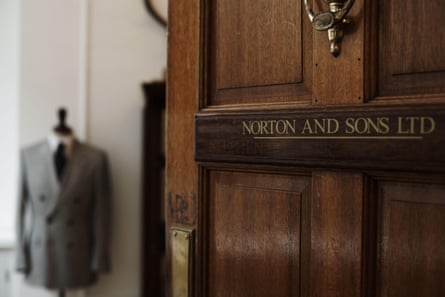
Then there’s the Cotswold village of Great Tew, where he shared a second home with ex-girlfriend Katie Hillier before the Soho Farmhouse members’ club “somewhat changed the dynamic of the neighbourhood” and the “white Range Rovers came flying down the road at 90mph”. He says all this, managing to look lordly while eating an eccles cake. (He’s also gossipy. “The Beckhams bought a really shit plot of land on the corner of a main road,” he says, chuckling. “Nicholas Johnston [who owns the estate] absolutely pulled their pants down.”)
He comes across as both homespun and high-end. He darns his own jumpers, and happily pushes up his T-shirt sleeves to reveal his “farmer’s tan” and forearms “like blocks of wood” from all the pickaxe work he’s been doing in his garden – where he’s hoping to lay, of all things, a croquet lawn. “I do love a bit of sport,” he says. He’s a sort of Renaissance man. The martial arts segment of his sporting CV alone includes taekwondo, kung fu, karate and judo, until he tore cartilage in his knee “sparring with a very large Ukrainian man”. His sentences often feel like the start of very long stories. His interests are so diverse. Is he bad at anything?
There’s a long silence. “Probably. I don’t know. I mean, I’m quite a practical person. I’m quite good with my hands. I work quite hard.” He has a think. “I’m less good at nurturing my relationships. I’m quite work-focused. I think my girlfriend would agree with that.”
For someone who doesn’t go in for shopping, Grant has made a couple of whopping impulse purchases. He bought the ailing Cookson & Clegg because “I’d worked with these people [when he owned Norton & Sons], and I didn’t want to see them chucked on the scrapheap.” He had never considered a career in the fashion industry back when he saw the ad for Norton & Sons in the FT. His first degree was in engineering, and he’d considered retraining as an architect, and a landscape gardener, before doing an MBA at Oxford in his early 30s. (He must have been the only student to have an allotment.)
So, is he impulsive? “I’m decisive,” he says carefully. “I’m definitely decisive. I don’t know. Where’s the boundary? I tend to decide quickly. And I tend not to worry about decisions too much once I’ve made them. What really was there to lose?”
Well, money. “It’s not a huge motivator for me,” he says. “I could have worked for a hedge fund or a private equity company or a management consultant and earned a lot of money.”
But it is much easier to advocate for less from a position of plenty. Grant and his sister both attended private schools. He owned a house in Liverpool and another in Oxford, which he leveraged to buy Norton & Sons. His book describes a comfortable childhood and isn’t always alert to the sound of privilege.
“We obviously had enough to pay [school] fees, but we also forewent everything else,” he says. “We didn’t have foreign holidays or much new stuff. I am conscious that I’ve always been privileged.” Clearly, though, he doesn’t shop with the same financial imperative as lots of people do. He is a wealthy man. “Yes, I probably am. No, I am,” he says, then adds, “I have no liquid wealth.”
His businesses were reported in 2018 to be valued at £75m; the line that Norton & Co made for Debenhams was “turning over nearly £30m a year”. But when Debenhams went bust, “it went to nowt overnight. They owed us a lot of money.” What was left “went into here [Cookson & Clegg]. I didn’t take anything from that. I own just over 50% and I own two-thirds of Community Clothing. And I own a house that is slowly being rebuilt.
“We have to try to find a way to reverse the enormous wealth inequality we’ve created. I’m trying to deploy whatsoever of my means I can, to do something that feels purposeful,” he says. “There could be a simple and more comfortable life. But I’m proud of what I do.”

 5 hours ago
6
5 hours ago
6

